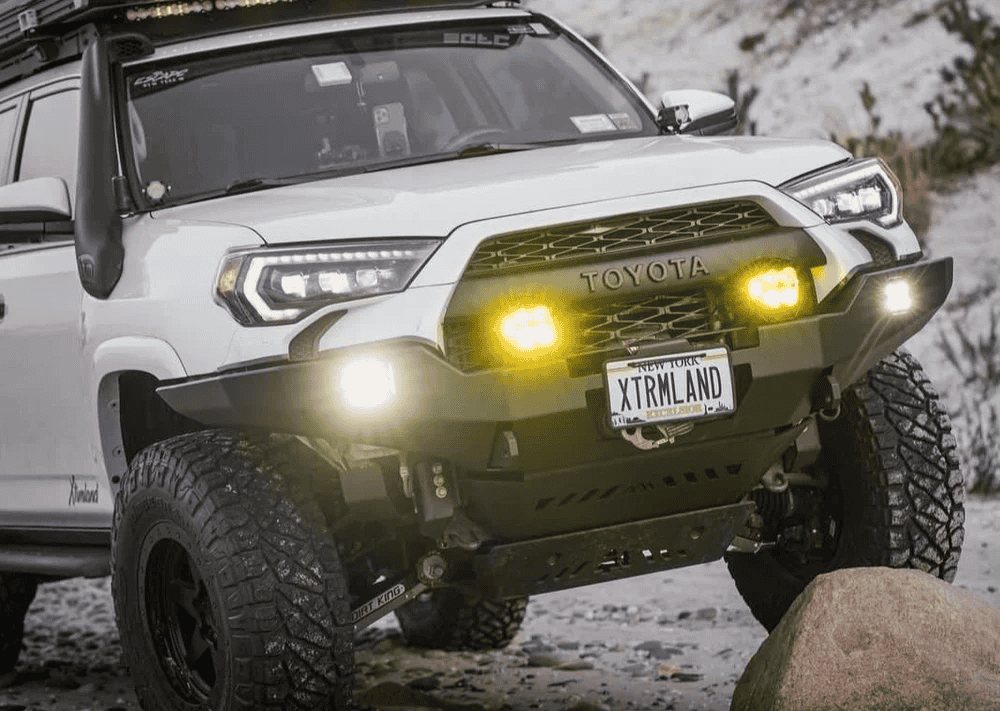Overland Vehicles

A mobile adventure base is a rolling home and gear depot designed to support travel, camping, and sport days without relying on hookups. It blends a comfortable living space with smart storage, real power, and weather control so you can stage at a trailhead or a river pullout and stay focused on the day’s objective. The goal is simple: keep essentials close, keep systems reliable, and keep the layout safe while driving and easy to use when parked. Unlike a basic camper, a true base prioritizes workflow and recovery capability for remote terrain. Think food and water on hand, batteries topped up, and gear secured yet accessible.
Power defines how long you can stay out. Many builds use lithium iron phosphate batteries for stable output and long cycle life, matched with a charge strategy that includes solar, alternator charging through a DC to DC charger, and shore power when available. Solar sizing should reflect real usage: refrigeration, fans, induction cooking, lights, and device charging often drive daily demand. Insulation, window covers, and ventilation reduce energy draw by keeping interior temperatures manageable.
Water systems need equal attention. A practical setup includes a clean tank, a grey tank, filtration or treatment, and a method to winterize. For longer trips, quick connect lines for outdoor rinsing keep mud and salt outside. Storage is more than volume; it is organization. Use modular cabinetry, tie down points, and zones for wet, dusty, and fragile items. Heavy gear sits low and forward to protect handling. Delicate cameras or laptops get padded cases and do not share space with steel tools.
Start with an energy audit. List every device, its draw, and hours of use. Battery capacity should cover at least one to two days without charging, with solar and alternator replenishing during travel and daylight. A high quality inverter, proper fusing, and a clean wire management plan reduce failure points and make troubleshooting faster in the field.
Aim for enough fresh water for drinking, cooking, and cleanup, typically 10 to 30 gallons for small platforms. Pair it with an efficient pump, quick drains, and a compact heater if you expect shoulder season travel. Ventilation matters as much as heat. Roof fans, screened windows, and passive airflow cut moisture and improve sleep.
A base for remote trips needs more than comfort. Fire safety starts with a mounted extinguisher and a detector for smoke and carbon monoxide. Add a first aid kit, traction boards, a shovel, and a jack suited to your vehicle weight. For communications, a satellite messenger or radio can bridge gaps where cell service fails. Route planning, tire pressure management, and a routine pre trip inspection will prevent most issues.
Different objectives shape different layouts. Mountain bikers often prioritize a rear garage with fork mounts, drainage, and a hose port so mud stops at the door. Climbers may want tall shelving, rope bags, and a fixed crash pad zone. Paddlers need wet storage, a place to hang dry suits, and quick access to a stove for warm meals. Families benefit from convertible seating that becomes sleeping, plus child friendly storage and safe anchor points. Keep pathways clear and avoid layouts that require major teardown just to cook or sleep.
Sound structure starts with weight distribution. Place batteries, water, and spares low and near the axle line. Avoid top heavy racks unless you truly need them, then adjust suspension to manage added mass. Soft close latches, compression locks, and marine grade hardware keep cabinets shut on rough roads. Noise reduction through insulation, matting, and tight panel fitment makes long drives less tiring.
A good plan becomes a great base through testing. Perform a shakedown trip close to home and record what works and what does not. Adjust storage so the daily routine takes fewer steps. Label breakers and valves. Create a simple maintenance log for tire rotations, filter changes, and battery checks. Over time, the best mobile bases feel intuitive, like a well packed trail kit.
When you are ready to turn a plan into a capable vehicle, an experienced builder can accelerate the process and avoid missteps. OZK focuses on real world function with clean integrations, from structure and cabinetry to 12 volt and 120 volt power, climate control, lighting, and secure gear zones. If your vision leans toward an all terrain rig, explore our Overland rigs approach for balanced capability. For tailored systems and interior fitment, see our Custom overland upfit path that refines power, water, and storage around your use case. To learn how we build, why we test, and how we treat clients, visit Why choose OZK Customs.
Your routes, your gear, your timeline. Share your plans and we will map a build that feels calm to drive and effortless to live in, with the power, water, and storage to support the way you explore. Submit the form so we can turn your mobile adventure base into a dependable travel partner built for real miles and real terrain.
Bring your mobile adventure base to life with a proven custom shop. Tell us how you travel, and our team will design, fabricate, wire, and test a turn key build that fits your routes and gear. Submit the form to start your build consult and get a transparent plan, budget, and timeline.
ADDRESS:
6159 E Huntsville Rd, Fayetteville, AR 72701
PHONE:
(479) 326-9200
EMAIL:
info@ozkvans.com